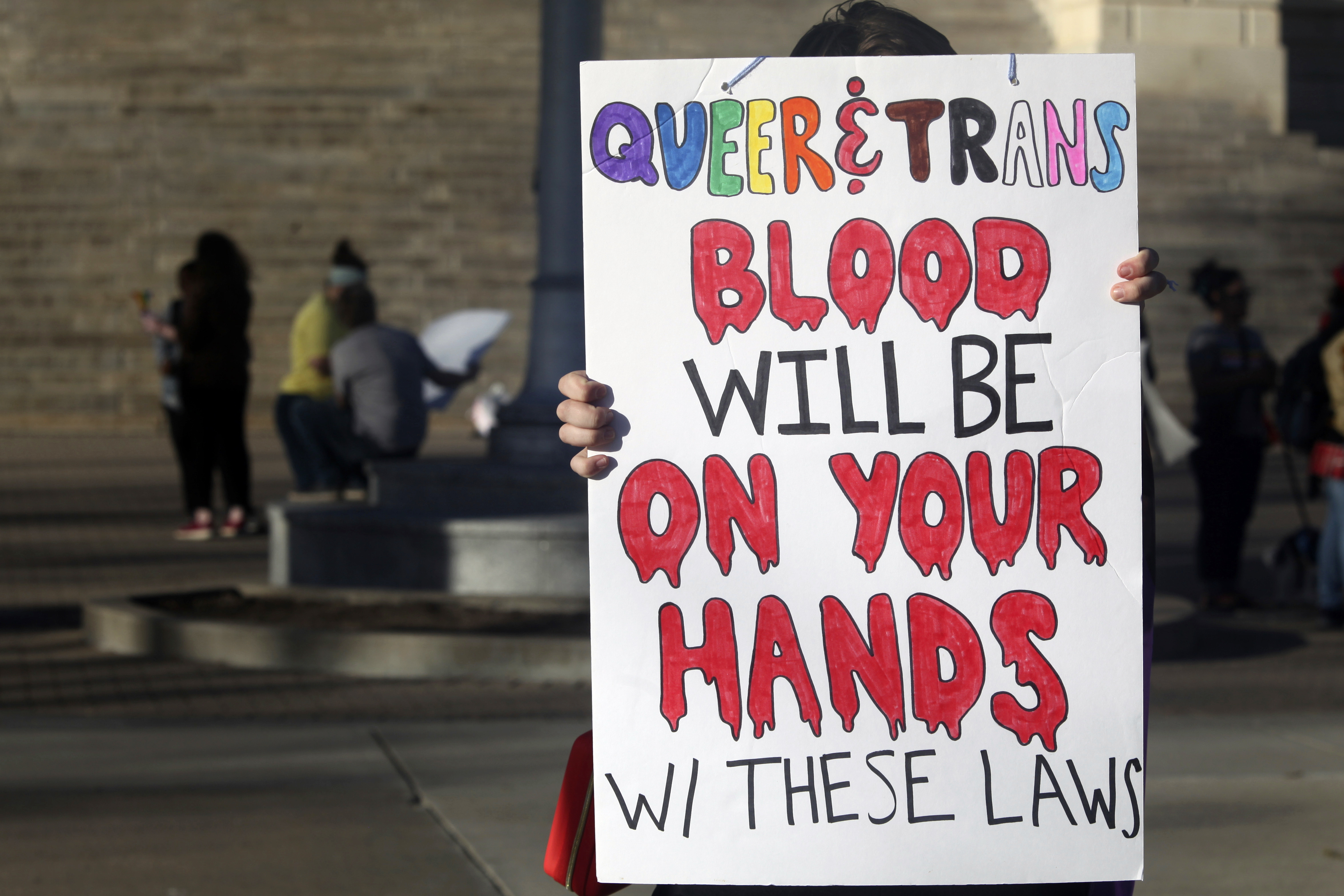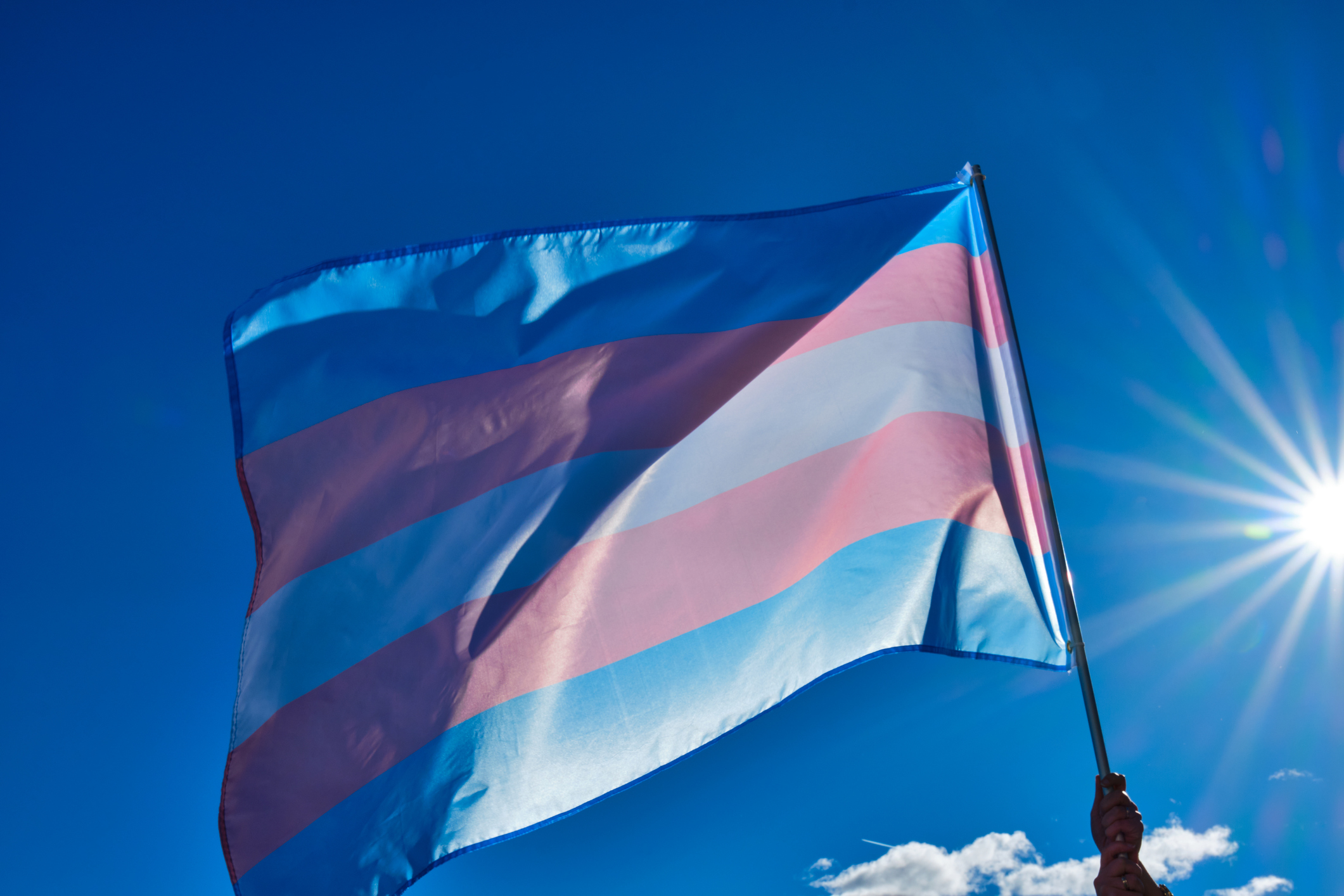
A Georgia school board voted along party lines Thursday to fire a teacher after officials said she improperly read a book on gender fluidity to her fifth grade class.
The Cobb County School Board in suburban Atlanta voted 4-3 to fire Katie Rinderle, overriding the recommendation of a panel of three retired educators. The panel found after a two-day hearing that Rinderle had violated district policies, but said she should not be fired.
She had been a teacher for 10 years when she got into trouble in March for reading the picture book “My Shadow Is Purple” by Scott Stuart at Due West Elementary School, after which some parents complained.
Get top local stories in San Diego delivered to you every morning. Sign up for NBC San Diego's News Headlines newsletter.
The case has drawn wide attention as a test of what public school teachers can teach in class, how much a school system can control teachers and whether parents can veto instruction they dislike. It comes amid a nationwide conservative backlash to books and teaching about LGBTQ+ subjects in school.
Rinderle declined comment after the vote but released a statement through the Southern Poverty Law Center, which helped represent her.
“The district is sending a harmful message that not all students are worthy of affirmation in being their unapologetic and authentic selves," Rinderle said in the statement. "This decision, based on intentionally vague policies, will result in more teachers self-censoring in fear of not knowing where the invisible line will be drawn.
The board’s four Republicans voted to fire Rinderle, while three Democrats voted against firing her after unsuccessfully seeking to delay the vote. Superintendent Chris Ragsdale, who is backed by the Republican majority, had originally recommended Rinderle be fired.
“The district is pleased that this difficult issue has concluded; we are very serious about keeping our classrooms focused on teaching, learning, and opportunities for success for students. The board’s decision is reflective of that mission,” the Cobb County district said in a press release.
Her lawyer, Craig Goodmark, told reporters after the meeting in Marietta that the vote was “an act that only can be construed as politics over policy," reiterating that the board policy prohibiting teaching on controversial issues was so vague that Rinderle couldn't know what was allowed or not. The hearing tribunal seemed to agree with that point, refusing to agree with a statement that Rinderle knowingly and intentionally violated district policies.
“It’s impossible for a teacher to know what’s in the minds of parents when she starts her lesson," Goodmark said. "For parents to be able, with a political agenda, to come in from outside the classroom and have a teacher fired is completely unfair. It’s not right. It’s terrible for Georgia’s education system.”
Rinderle could appeal her firing to the state Board of Education and ultimately into court. Goodmark said Rinderle was considering her options. Although she was fired effectively immediately, she's still licensed and could teach elsewhere.
“She will be a teacher again,” Goodmark said.
Cobb County adopted a rule barring teaching on controversial issues in 2022, after Georgia lawmakers earlier that year enacted laws barring the teaching of “divisive concepts” and creating a parents’ bill of rights. The divisive concepts law, although it addresses teaching on race, bars teachers from “espousing personal political beliefs.” The bill of rights guarantees that parents have “the right to direct the upbringing and the moral or religious training of his or her minor child.”
Rinderle is believed to be the first public school teacher in Georgia to be fired because of the laws. None of the board members discussed the decision, but school district lawyer Sherry Culves said at the hearing that discussing gender identity and gender fluidity was inappropriate.
“The Cobb County School District is very serious about the classroom being a neutral place for students to learn,” Culves said at the hearing. “One-sided instruction on political, religious or social beliefs does not belong in our classrooms."



